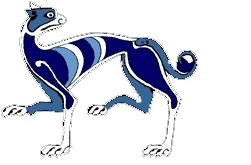Research projects
Lost World of the Irish Clans
To raise philanthropic funds in the US to support research in late medieval/early modern Irish history at UCC, focussing on detailed investigation of the Gaelic and Gaelicized clans and families who ruled the various regions of the country c.1250-c.1650. There has long been major US interest in Irish Family and Local History. This project seeks to attract the investment of private donors interested in exploring Irish Family History long before the Famine – during a time when English power on the island was limited and when Irish society was dominated by dozens of Irish noble families, or clans, ruling parts the country virtually independently. Despite growing awareness of the importance of local clans in the history of medieval and early modern Ireland, the subject has not received the sort of sustained attention it requires to challenge the prevailing English-centred narrative of the period. By funding research in a number of key areas the project will help recover the lost world of the Irish clans and recalibrate how the general history of late medieval and early modern Ireland is presented.
UCC has a leading position in this area of research. From James Hogan and Tadhg O’Donnchadha in the Free State era, through the seminal publications of Kenneth Nicholls in the 1970s and ‘80s, to the work of the current group of scholars employed in the university, UCC has often pioneered study of the medieval Irish clans and their territories. Until now, this research has been conducted by individuals, working in isolation in the university. As an interdisciplinary project, involving UCC historians, Gaelic language scholars, and archaeologists, ‘The World of the Irish Clans’ will create the critical mass to deliver the first comprehensive overview of the subject.
How much and what for: We are seeking total funding of €1.6 million to finance six inter-connected research strands, from the genealogies of the ruling Gaelic and Gaelicized clans to the organization and exploitation of their territories and impact on the landscape. Each strand will be separately financed, with the opportunity for donors to fund named research scholarships and fellowships and support the work that the scholars, fellows and the research leaders undertake. The donor/s will also be named on the final published outputs.
The principal investigator of this project is Dr David Edwards. He is contactable at d.edwards@ucc.ie.
Irish Merchants in Bordeaux: The Irish Role in the Invention of Grands Crus Wines

Researcher: Dr Charles C. Ludington, Visiting Fellow from Department of History, North Carolina State University.
This project has received funding from the European Union’s Horizon 2020 research and innovation programme under the Marie Sklodowska-Curie grant agreement No 660618.
Project
Objectives
This Marie Curie project investigates the creation of one of Europe’s great cultural treasures: fine wine from Bordeaux. Modern historians have generally sought to explain the creation of Bordeaux grands crus as a result of wealthy English consumers whose demand for fine wine inspired and funded Bordelais wine-makers, or else the result of superior geography (terroir) and centuries of French wine-making skill. But these explanations, even when synthesized, overlook the necessary role of middlemen, the “British” (in fact mostly Irish) merchants who “raised” the wines in their Bordeaux cellars, blended them to their customers’ tastes, and then got the wines to market in Northern Europe. In many ways, these merchants were as much the “winemaker” as the maitre de chai at the chateau. Indeed, in French, the merchants were known as “negociants-eleveur,” or wholesaler-growers, as it was they who purchased the wine within weeks of production and then “grew” or “raised” the wine in their cellars by racking the wine from its gross lees (sediment), fining (clarifying) the wine with egg whites, and blending the Bordeaux wine with wine from the Northern Rhone Valley (Hermitage) and Eastern Spain (Benicarlo and Alicante). The importance of these merchants has long been acknowledged by French historians, but their role in producing the wines has never been fully explained. This project has uncovered the activities of leading wine merchants in the creation of fine Bordeaux wines, and placed those activities within a broader network of trade that was centred on Bordeaux and Ireland, but included northern Europe, West Africa, and the Caribbean. In so doing, my project shows that neither terroir nor wealthy consumers–nor even a synthesis of the two–can explain the birth of fine Bordeaux wine; instead, the chain of causality must include the entrepreneurial and wine-raising skills of Irish merchants and vast networks in which they operated.
Learn more >>
Monastic Ireland

In December 2013 the Monastic Ireland project received funding of €369,000 from the Irish Research Council for its three-year ‘Monastic Ireland: Landscape and Settlement’ research project under the Advanced Project Grant scheme (2013-16). The project’s website was launched by Minister, Heather Humphreys TD, Minister for Arts, Heritage and the Gaeltacht on 4 December 2014. The project team is currently preparing an international workshop on the project in April 2015 as well as an international Monastic Europe conference in Ennis, in August 2015. The project is led by Dr Rachel Moss, TCD (Project Investigator) and Dr Edel Bhreathnach, Discovery Programme (Project Assistant) and Dr Małgorzata Krasnodębska-D’Aughton, School of History, UCC. Dr Anne-Julie Lafaye is the IRC post-doctoral fellow on the project, with Dr Keith Smith and Dr Mirian Clyne being the postdoctoral research assistants.
The aim of the tourist website is to provide visitors with access to educational, practical and entertaining information based on high quality historical and archaeological information. This information is accompanied by a tour of each site.
The educational resource is for teachers and students wishing to develop local history and archaeological projects. This website revolves around the existence of monastic and church sites in every locality in Ireland and how these buildings and landscapes can be used to connect young people with their historic and archaeological environs and make them the custodians of their own heritage
See http://www.monastic.ie/; http://www.discoveryprogramme.ie/research/current-projects/monastic-ireland.html.

